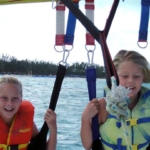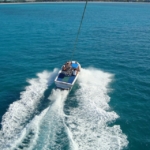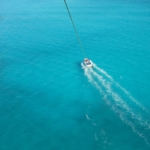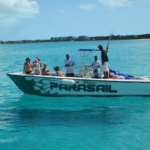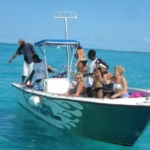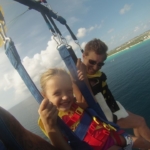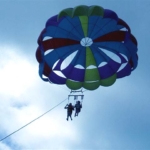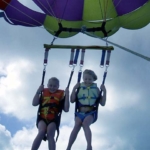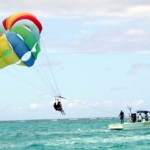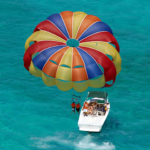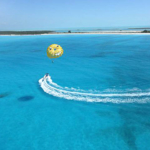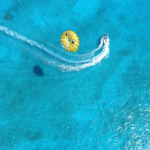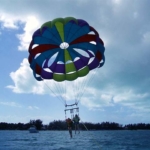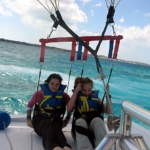Turks and Caicos Parasailing Flights
GRAND TURK
GRAND TURK
Ever wanted to experience the thrill of flying 500 feet above the sea? With no experience or skills necessary, you can experience one of Grand Turk’s favorite activities. Our grandma does it every year on her birthday, and she’s well into her eighties. We are fully licensed and insured, native owned and operated, and have been hosting happy customers since 2004.
Fly single, tandem or triples. Take off from and land right on our boat. Shoot photos and videos in flight. (If you’re really lucky, in season you might just see a humpback whale.)
Before you fly, we will provide you a safety briefing that will explain take-off and landing procedures and how to communicate from the air. Once we harness you into the parasail canopy, you will launch directly from the boats specially designed flight deck. The flight lasts about 7-8 minutes, topping out at a height of approximately 500 feet. You will enjoy a unique view of Grand Turk’s beautiful beaches, reef formations, the drop-off into the Abyss, and even catch a glimpse of the far side of the island. You will land right back on the boat’s flight deck, where our crew will unfasten the canopy and guide you back to your seat.
Our premium parasail boat was designed and built specficially for parasailing. The maximum capacity of the excursion is 12 guests. The maximum combined weight for you and all parasailers on your flight is 450 lbs. (The maximum weight could be less depending on wind and sea conditions.) For safety reasons, people with back or neck injuries, heart conditions, and pregnant women are not allowed to parasail.
Parasailing FAQs
Refund Policy:
-a 100%* refund for cancellations made at least 24 hours in advance of the start date of the experience.
-Cancellations made within 24 hours of the start date of the experience will receive no refund.
Of course, if weather conditions or other factors force us to cancel your reservation, you will receive a full refund*.
*The ticket service charge is not refundable.



